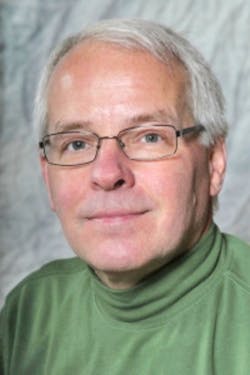Executive Editor
Despite the gloomy headlines, humanity is flourishing, according to Steven Pinker, a professor of psychology at Harvard. In a Wall Street Journal column adapted from his new book Enlightenment Now: The Case for Reason, Science, Humanism and Progress, he writes that in 1800, the world literacy rate was well under 20%. Today, that figure is over 80%.
Looking closer to home and over a shorter time span, he notes that just three decades ago, 11% of Americans fell below the poverty line; today, that figure is 3%. Pinker attributes the progress to disease being decimated by medicine; famine being staunched by agricultural advances; poverty being cut through education, global trade, and social programs; crime being cut through innovations like data-driven policing; everyday hazards being blunted by safety regulations and engineering; and war being marginalized by democracy and global commerce.
Pinker acknowledges that although poverty is falling worldwide, inequality in developed countries is rising. This inequality in the United States is the subject of an interview featuring Nancy Scola, a senior technology reporter for POLITICO Pro, and MIT researcher and labor economist David Autor.
Technology has restructured the economy, shaken up the workforce, and shifted opportunity to tech-centric urban hubs, writes Scola, adding that artificial intelligence will accelerate change. Scola comments that technology has created an inequality gap with winners and losers separated by region and workplace. AI, she says, will accelerate the change, potentially making the gap more extreme. Comments Autor, “I don’t think the U.S. is dealing with it especially well.”
Autor cites as examples Saudi Arabia and Norway. Both have oil wealth but have responded differently, leaving Saudi Arabia rich, unequal, and unhappy, whereas Norway is rich, egalitarian, and happy. If technology is the oil of the United States, leaders will have to decide whether to pursue a path of segregated or shared wealth, he says.
Autor outlines various aspects of automation and its effect on the workforce. He sees a polarization of jobs—people without college degrees can no longer count on jobs in manufacturing or clerical and administrative support. Instead, they find work in housecleaning, home healthcare, and security. “Ironically, we’ve automated some of the stuff that was more interesting for us, and we’re left with some of the stuff that is less interesting,” he says.
Communications technologies would seem to make unnecessary the rush of opportunity to tech-centric hubs. In 2001, Autor had predicted a form of “geographic arbitrage,” in which employers could leverage workers telecommuting from low-cost areas. He now says that hasn’t happened, with remote and in-person communications being complements—not substitutes. “Somehow, the force of people wanting to clump together has actually, seemingly, if anything gotten stronger,” he tells Scola. Companies want to move where other companies are, and intelligent people want to move to where other intelligent people are.
Autor cites as an example Amazon’s attempt to establish a second headquarters. The company is considering high-cost, low-unemployment, crowded cities like Austin, Boston, and Chicago—not Gary, Indiana, which “…has been down and out since they made ‘The Music Man,’” he comments.
Autor says the lesson of history is that we face an opportunity, with things that raise the GDP making us more productive and creating aggregate wealth. The question is whether we use that wealth to create a mobile, prosperous, open society or to make some people very wealthy while keeping everyone else closer to the poverty line that Pinker expects to vanish. It’s not clear that governments and corporate interests are up to the task of making and implementing the right decision.
Visit my blog for links to Pinker’s column and Scola and Autor’s Q&A
About the Author

Rick Nelson
Contributing Editor
Rick is currently Contributing Technical Editor. He was Executive Editor for EE in 2011-2018. Previously he served on several publications, including EDN and Vision Systems Design, and has received awards for signed editorials from the American Society of Business Publication Editors. He began as a design engineer at General Electric and Litton Industries and earned a BSEE degree from Penn State.

